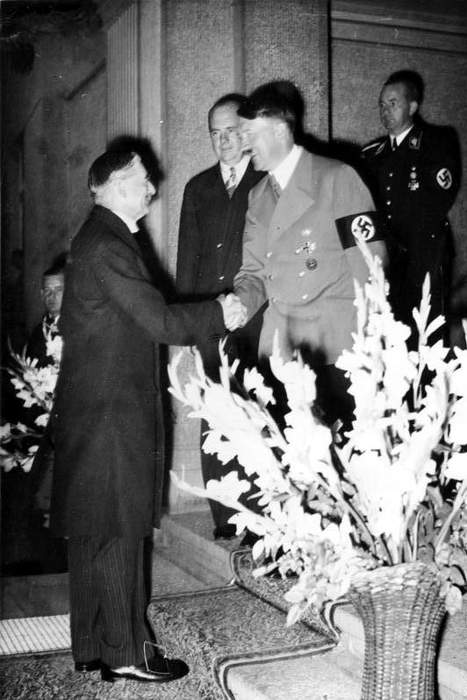Appeasement
Diplomatic policy of concessions
Appeasement ▸ Facts ▸ Comments ▸ News ▸ Videos

Appeasement, in an international context, is a diplomatic negotiation policy of making political, material, or territorial concessions to an aggressive power with intention to avoid conflict. The term is most often applied to the foreign policy between 1935 and 1939 of the British governments of Prime Ministers Ramsay MacDonald, Stanley Baldwin and most notably Neville Chamberlain towards Nazi Germany and Fascist Italy. Under British pressure, appeasement of Nazism and Fascism also played a role in French foreign policy of the period but was always much less popular there than in the United Kingdom.
| 0 shares | ShareTweetSavePostSend |
![Trump Shocks Kremlin: Extends Biden's Russia Sanctions, Warns New Punishment if No Ceasefire by... [Video]](https://video.newsserve.net/300/v/20250413/1407948838-Trump-Shocks-Kremlin-Extends-Biden-Russia-Sanctions.jpg) Trump Shocks Kremlin: Extends Biden's Russia Sanctions, Warns New Punishment if No Ceasefire by... Credit: Oneindia Duration: 03:40Published | |
You Might Like
'BJP-led NDA works for Santushtikaran, not Tushtikaran': PM Modi in Rajya SabhaPrime Minister Narendra Modi on Thursday accused Congress of appeasement politics and said the BJP-led NDA government works for "shantushtikaran" (total saturation) and not "tushtikaran".DNA - Published | |
BJP's Shehzad Poonawalla equates TMC with Tushtikaran, Tanashahi Taliban, says BJP will emerge as the biggest partyIndiaTimes - Published |
| Search this site and the web: |
